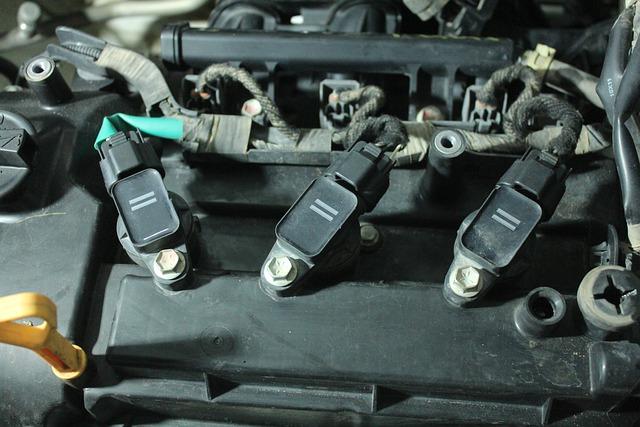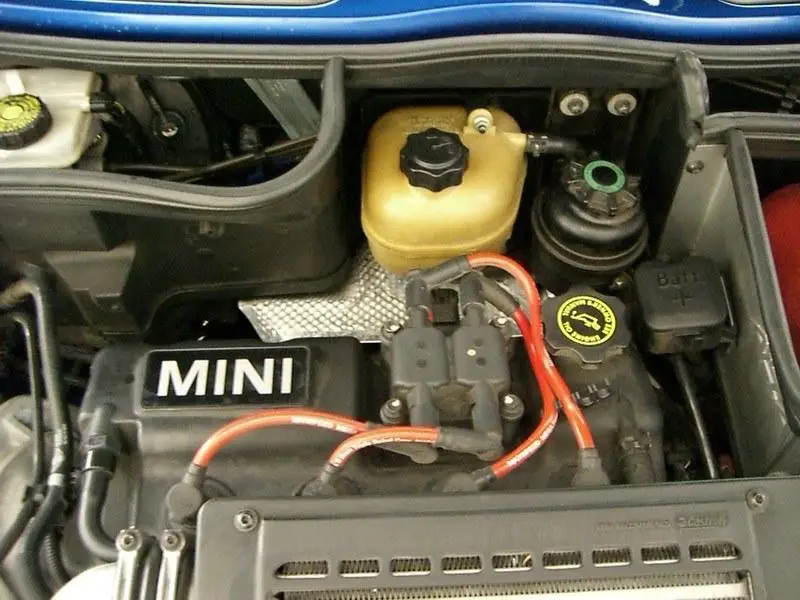The typical lifespan of an ignition coil is around 100,000 miles. However, this can vary depending on the type of vehicle and the driving style. If you’re experiencing problems with your ignition coil, it’s usually best to replace it sooner rather than later. You can usually tell when it’s time to change your ignition coil by checking for any of the following symptoms:
- Car Won’t Start
- Engine Misfires
- Rough Idling
- Check Engine Light Is On
- Poor Fuel Economy
Read also: Can A Bad Ignition Coil Cause Transmission Problems?
Change Ignition Coils When You Notice the Symptoms

The car won’t start
If your car won’t start, the most likely reason is that the ignition coils are bad. You should change them if they’re more than 3 years old.
The ignition coils create an electrical spark that starts the engine. They get hot and wear out over time, so it’s a good idea to replace them every 3 years or so. The exact lifespan of an ignition coil will vary depending on the make and model of your car, but it’s a good rule of thumb to change them around the same time you replace your spark plugs.
Engine Misfires
Answer: Engine misfires can be caused by a number of different factors, including ignition coils. If you’re experiencing engine misfires, it’s best to have your car inspected by a qualified mechanic as soon as possible to determine the root cause. Ignition coils may need to be changed if they’re not functioning properly, which can cause engine misfires.
Rough Idling
A misfiring cylinder will cause the engine to run rough, especially at idle. If you experience a rough idle, it’s a good indication that one or more of your ignition coils are on their way out.
The best way to tell if an ignition coil is bad is to perform a spark test. To do this, remove each coil in turn and attach a spark tester (or jumper wire) to the metal connector on top of the coil. Have someone crank the engine while you watch the sparks. If any of the sparks are weak or missing, that coil is bad and needs to be replaced.
Check Engine Light Is On
A Check Engine Light could mean many things, but one of the most common problems is a bad ignition coil. If the Check Engine Light is on, it’s a good idea to get the car checked out by a mechanic. Ignition coils can fail for many reasons, but usually, it’s because they’re old and need to be replaced.
If the Check Engine Light comes on and you know that your ignition coils are bad, then it’s time to change them. Coils typically last around 100,000 miles, so if you’ve driven your car more than that since your last tune-up, it’s probably time for new ones. You can change them yourself or take the car to a mechanic.
Poor Fuel Economy
A number of conditions can cause a car engine to misfire, including clogged or dirty fuel injectors, a low-quality fuel mixture, and ignition system problems. One of the most common causes of engine misfires is a bad ignition coil. If you’re experiencing poor fuel economy and your car is misfiring, it’s likely time to change your ignition coils.
Why Should You Change Ignition Coils?
There are a few key reasons why you might want to change your ignition coils: if they’re old and worn out, if they’re not providing enough spark power, or if they’re causing misfires.
If your ignition coils are old and worn out, then it’s likely that they’re not providing enough power to ignite the fuel in the cylinders. This can lead to lower gas mileage, difficulty starting your engine, and an overall decrease in performance.
If your ignition coils are not providing enough spark power, then it’s possible that you’re experiencing misfires. Misfires can cause all sorts of problems with your engine, including decreased performance, rough running, and even damage to the cylinders and pistons.
Symptoms like these can be caused by ignition coil failure, so if you’re experiencing any of them, it’s worth getting your coils checked out. Ignition coils can wear out over time, and replacing them before they fail completely can help avoid more serious problems down the road.
Will New Ignition Coils Improve Performance?
Yes, replacing your ignition coils will improve performance. When the ignition coil fails, it can’t create a spark strong enough to ignite the fuel in the engine. This will cause your engine to run rough and could eventually lead to a stall.
Installing new ignition coils can solve this problem and help your engine run more smoothly. You may also see a slight increase in horsepower and gas mileage once the ignition coils have been replaced. So if you’re experiencing any of these problems, be sure to replace your ignition coils as soon as possible.
How to Find the Best Ignition Coils?
When looking for the best ignition coils, you want to consider the make and model of your vehicle, as well as the type of ignition system it uses. You also want to find a coil that is compatible with your spark plugs.
There are a variety of different ignition coils on the market, so it’s important to do your research before making a purchase. Read reviews from other consumers and contact the manufacturer if you have any questions.
When shopping for ignition coils, be sure to compare prices and find the best deal possible. It’s worth spending a little extra money on high-quality coils that will last longer and provide better performance.
What is the cost of New Ignition Coils?
The cost for new ignition coils can vary depending on the type and brand of the coil. Generally, ignition coils cost between $30 and $100 each, but some high-end models can cost up to $200 and more. It’s important to note that not all ignition coils are created equal; some are designed for high-performance or racing applications, while others are meant for everyday driving. So if you’re looking for a high-quality, performance-oriented ignition coil, be prepared to spend a little more money.
Conclusion
changing your vehicle’s ignition coils regularly is important for making sure your engine runs efficiently and smoothly. Ignition coils need to be replaced every 50,000-100,000 miles depending on the type of vehicle. It is also important to check your ignition coils regularly for signs of wear or damage and to have them replaced if necessary. By following these guidelines, you can ensure that your vehicle runs smoothly and efficiently for years to come.

